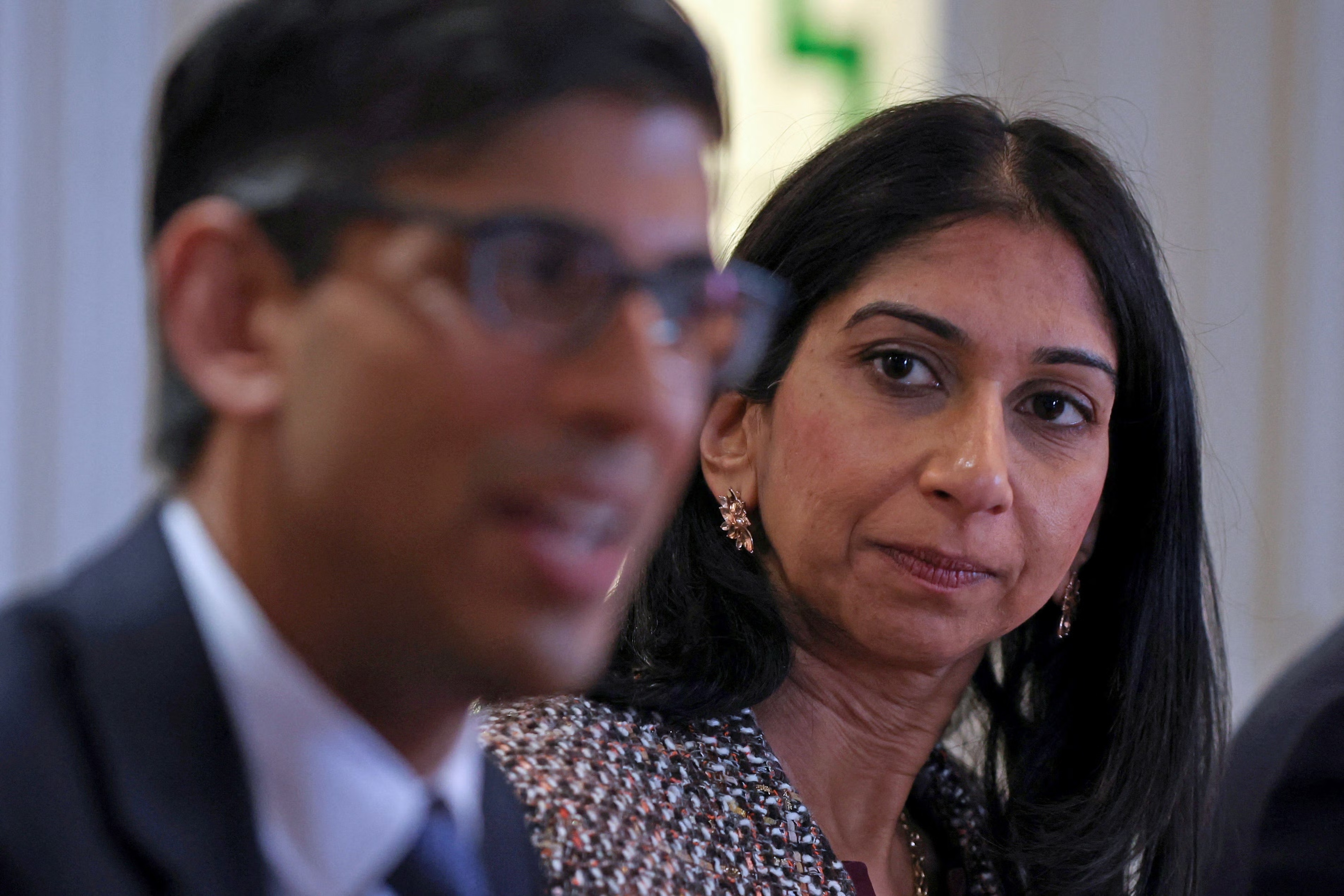In a decisive shift of perspective, UK Interior Minister Suella Braverman has voiced her concerns regarding the government’s pursuit of net-zero policies, emphasizing that ecological commitments should not come at the expense of financial well-being. This statement coincides with Prime Minister Rishi Sunak’s apparent inclination to revise certain aspects of the government’s ambitious net-zero agenda, fueling a debate on the financial implications for citizens.
The backdrop to this discourse is the looming prospect of a general election scheduled for next year, where the Conservative Party, led by Rishi Sunak, finds itself trailing behind the Labour opposition in the polls. Central to this political contest is the pressing issue of the cost of living, which has become a palpable crisis.
Suella Braverman’s message is unequivocal: “We absolutely remain committed to delivering net zero by 2050 in line with our international agreements,” she affirms. However, she pragmatically adds that the approach must be characterized by proportionality, taking into account the economic realities faced by the British populace.
“We’re not going to save the planet by bankrupting the British people,” Braverman asserts during an interview with Sky News. Her stance pivots on the belief that economic growth, the financial health of households, and the day-to-day cost of living should occupy a paramount position in policy considerations.
Rishi Sunak, who is poised to address this critical issue in an upcoming speech, has underscored the government’s commitment to the net-zero target. Nevertheless, he has hinted at a more balanced and measured approach to its attainment. In a statement released on Tuesday, Sunak expressed the intention to achieve net zero “in a better, more proportionate way.”
These statements follow media reports suggesting that the government is contemplating a revision of plans to phase out gas boilers by 2035 and a potential delay in the ban on the sale of new petrol and diesel cars, initially slated for 2030.
Prime Minister Sunak’s rationale for this recalibration is rooted in a desire for transparency. He contends that politicians, regardless of their affiliation, have not been forthright about the costs and trade-offs associated with ambitious climate goals. He has committed to prioritizing the long-term interests of the country over short-term political considerations.
This shift in stance carries the potential to sow seeds of dissent within the Conservative Party. Alok Sharma, a former Cop26 president and Conservative MP, cautions that backtracking on the net-zero agenda would neither serve economic interests nor resonate with the electorate.
Chris Skidmore, a Conservative former energy minister and leader of a review on the UK’s progress toward net zero, urges Sunak to reconsider, emphasizing the gravity of this pivotal juncture in his premiership.
As the debate unfolds, the delicate balance between environmental responsibility and economic prudence takes center stage. The nation watches closely, aware that the outcome will have profound implications not only for the environment but also for the pocketbooks of its citizens.


